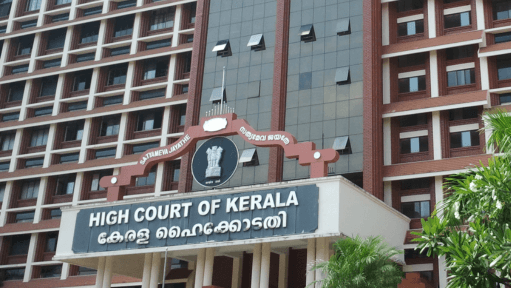
Man Who Briefly Worked in Pakistan for Job Not an Enemy, Rules Kerala High Court
The Court made the observation while quashing proceedings initiated under the Enemy Property Act, 1968
An Indian man cannot be termed an ‘enemy’ under the Defence of India Act or its rules merely because he briefly worked in Pakistan, observed the Kerala High Court recently.
The Court made the observation while quashing proceedings initiated under the Enemy Property Act, 1968 against certain land that had belonged to the now-deceased man, which was later acquired by his son.
The 74-year-old son (petitioner), a retired police officer, was not allowed to pay basic tax on this property on the ground that there were instructions not to alienate the said land on account of proceedings initiated against it under the Enemy Property Act.
The petitioner was told that his father, who passed away in 1995, had been viewed as an "enemy" since he went to Pakistan in search of a job in 1953.
Aggrieved, the petitioner moved the High Court seeking relief.
In a June 24 ruling, Justice Viju Abraham observed that moving to Pakistan for a job does not make one an "enemy" under the Defence of India Rules.
"Only for the reason that the petitioner's father had gone to Pakistan in search of a job and worked there for a short period will not bring the petitioner’s father within the definition of ‘enemy’ under Rules 130 or 138 of the Defence of India Rules, 1971, which was provided for a totally different purpose and the reliance placed on the said Rules is totally out of context and irrelevant to the facts of the case in hand," the Court said.
The Court was dealing with a petition filed by P. Ummer Koya after he came to know that the Custodian of Enemy Property for India (CEPI) had initiated proceedings against his father under the Enemy Property Act, 1968, based on a 1971 notification issued by the Union Ministry of Foreign Trade.
This notification stated that all property defined as enemy property under Rule 138 of the Defence of India Rules, 1971 and which is held by an enemy, as defined under Rule 130, would be vested in the CEPI.
Rule 130 deals with the 'Control of Trading with Enemy,' and Rule 138 pertains to the 'Control of Enemy Firm.' These rules were designed to prohibit trade with an enemy or enemy firms.
Koya contested the decision to declare his father's property as "enemy property" under these provisions. He told the Court that he and his family have been residing in Malappuram, Kerala for generations. His father died in 1995 at the age of 93 years and was buried in India, he added.
He submitted that his father had briefly worked in Karachi, Pakistan as a helper in a hotel around 1953, due to which police authorities used to brand the petitioner's father as a citizen of Pakistan.
The father, however, approached the Central government in the matter and in 1990, his Indian citizenship was expressly confirmed. The authorities made inquiries and concluded that Koya's father never voluntarily acquired Pakistani citizenship and therefore, remained a citizen of India.
The Court found merit in these arguments, and also noted that the 1971 notification was only meant to prevent trading with an "enemy" and "enemy firms" to prevent external aggression against India.
The Court found no evidence that the petitioner's father was engaged in trading with an enemy or under the control of an enemy firm during his stay in Pakistan.
"The petitioner's father will not come under the definition of ‘enemy’ nor the property held by him by any stretch of imagination be held as an ‘enemy property … The 6th respondent (CEPI) has absolutely no case that the petitioner’s father was trading with an ‘enemy’ or part of any ‘enemy firm’ carrying out business with India," the Court found.
The Court, therefore, quashed the proceedings initiated by CEPI and instructed the village officer to accept the basic tax payment from the petitioner.
For any enquiries or information, contact ask@tlr.ae or call us on +971 52 644 3004. Follow The Law Reporters on WhatsApp Channels.